Midstream
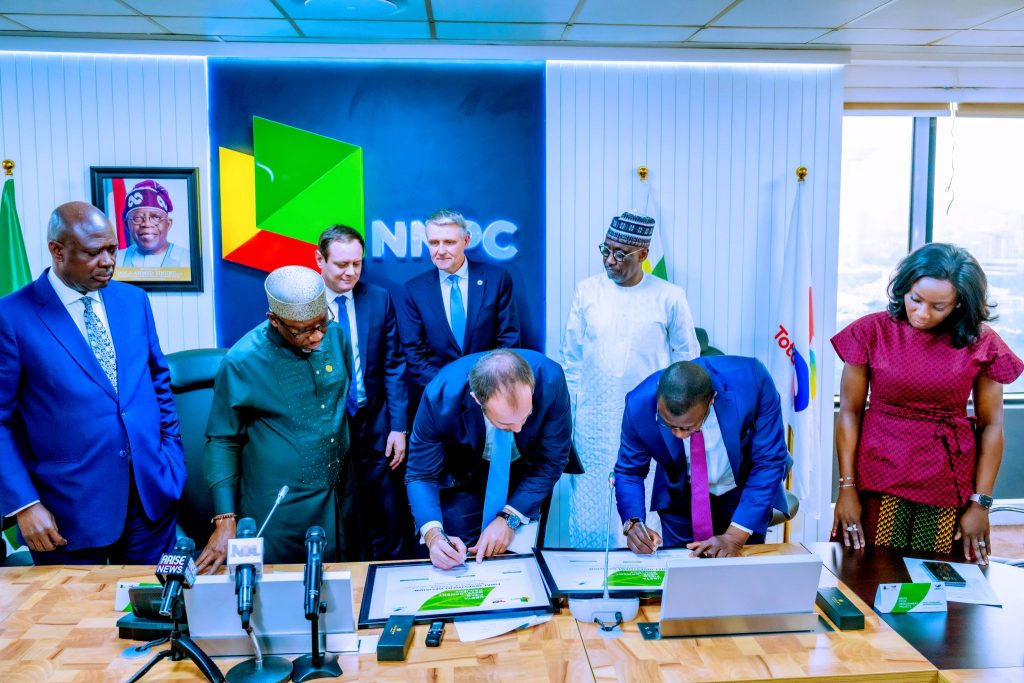
NNPC and TotalEnergies announce $550m investment in Nigeria’s Ubeta Gas Field
The Nigerian National Petroleum Corporation and TotalEnergies have announced a $550 million investment decision for the development of the Ubeta Field, a key onshore gas project expected to provide feedstock to Nigeria LNG – Africa’s biggest LNG export terminal. The project is located within OML 58, a TotalEnergies-operated onshore license that frequently suffers production disruptions due to pipeline vandalism and crude theft. The Ubeta field, discovered in 1964 and located northwest of Port Harcourt in the Niger Delta, is projected to produce about 350 million standard cubic feet (MMscf/d) of gas and 10,000 barrels of associated liquids daily. This development is expected to contribute significantly to the supply for NLNG’s Train 7. “Ubeta is the latest in a series of projects developed by TotalEnergies in Nigeria, most recently Ikike and Akpo West. I am pleased that we can launch this new gas project which has been made possible by the Government’s recent incentives for non-associated gas developments,” TotalEnergies’ Senior Vice President for Africa, Exploration & Production, Mike Sangster, said in a company statement. “Ubeta fits perfectly with our strategy of developing low-cost and low-emission projects, and will contribute to the Nigerian economy through higher NLNG exports.” At the official signing event at NNPC Towers, Group CEO Mele Kyari expressed appreciation for the Tinubu administration’s support in fostering a conducive fiscal environment that has been instrumental in reaching this significant FID. “The Presidential Executive Order is instrumental to us getting to this significant milestone, and we are now seeing the impact of the policy,” Kyari said. Slated for a 2027 start-up, the Ubeta gas condensate field in OML58 will be developed with a six-well cluster connected by pipeline to the existing Obite treatment plant. The development plan includes a 5 MW solar plant and electrification of the drilling rig to reduce carbon intensity. TotalEnergies and NNPC are also focusing on local content, with more than 90% of manhours expected to be worked locally. The Ubeta Field’s FID marks a significant step in NNPC’s ongoing efforts, supported by the executive branch, to address the challenges that have historically hindered foreign investment in Nigeria’s oil and gas industry. The project is expected to stimulate economic growth, create job opportunities, and generate substantial value for various stakeholders.
Read more »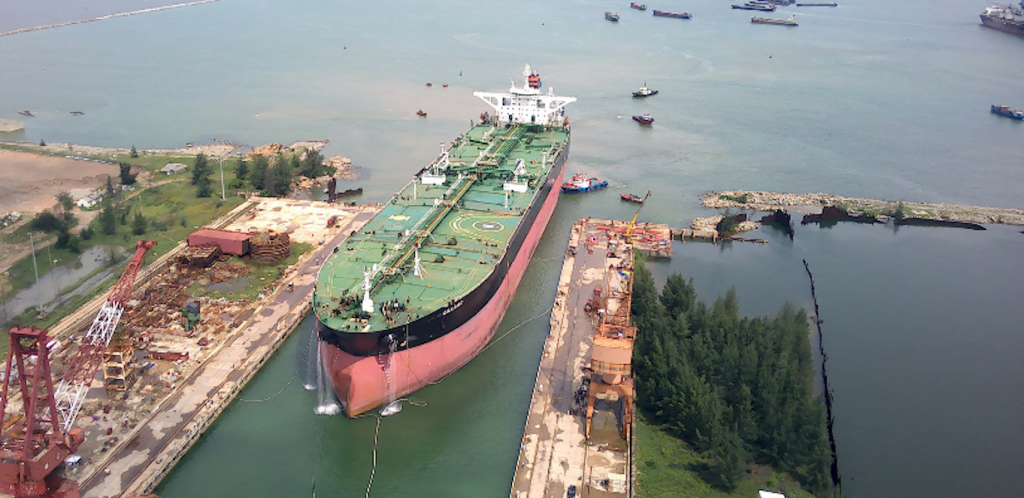
Nigeria: start of exports from the new Nembe Creek Oil Export Terminal
Nigeria has introduced a new crude oil grade to the international oil markets with the exports of two cargoes of Nembe Crude Oil from the new Nembe Crude Oil Export Terminal (NCOET), NNPC Ltd said. The two initial cargoes of 950,000 barrels each have been exported to France and the Netherlands. Nembe crude is produced from onshore OML 29, operated by the NNPC/Aiteo Eastern E&P joint venture. Oil was previously exported via the Nembe Creek Trunk Line (NCTL) to Shell’s Bonny Oil Terminal. However, recurrent crude theft and pipeline vandalism have made the export route unavailable for months, severely curtailing production from OML 29. The unreliability of the pipeline has also affected Newcross E&P (OML 24), Eroton E&P (OML 18) and BelamOil (OML 55) who all rely on NCTL to access the Bonny Oil Terminal. Nembe crude has a low sulphur content and low carbon footprint due to flare gas elimination, NNPC said. This makes the new grade particularly attractive for European buyers. The oil also has an attractive Assay of API 29, which commands a premium to the global Brenth benchmark. The new export terminal was established following the Nembe Crude Oil Export Terminal, Nembe (Establishment) Order gazette on January 19th, 2021. It relies on the 2 million barrels Galilean 7 floating, storage and offloading (FSO) vessel able to export some 3.6 million barrels of oil every month. The FSO was converted from a crude oil tanker at the Dung Quat Shipyard in Vietnam. Several alternative crude oil evacuation systems have been put in place by operators who used to rely on the Nembe Creek Trunk Line. Newcross E&P put in place the MB Bryanston shuttle tanker with a storage capacity of some 800,000 barrels. Along with nearby producers, the company has been barging crude from OML 24 to the vessel before sending oil to the Bonny Oil Terminal for exports. Last month, Century Energy Services Ltd (CESL) also announced the completion of spread mooring installation at another 2 million barrels FSO, the ELI Akaso. The unit is owned by Energy Link Infrastructure Limited and will help debottleneck production from OML 18.
Read more »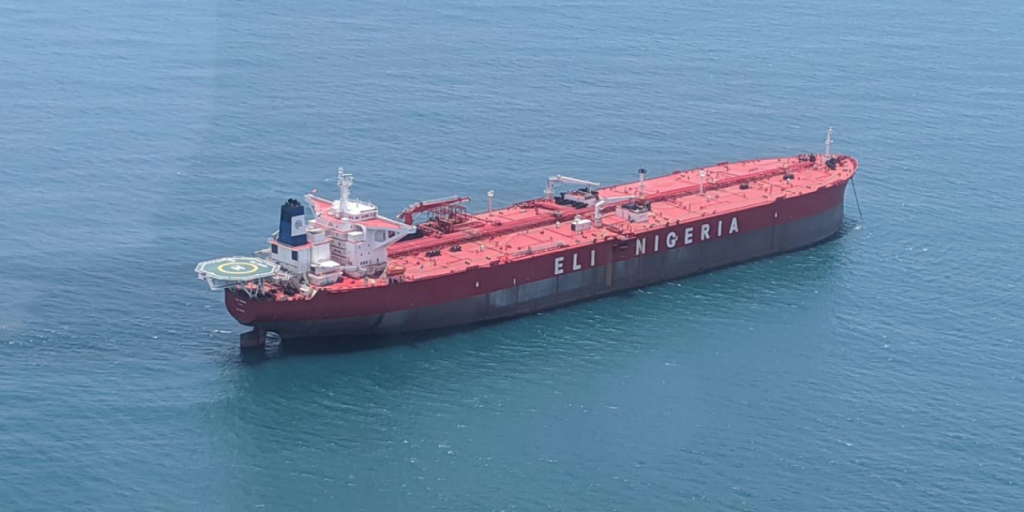
Nigeria: new FSO ELI Akaso has started storage operations offshore Bonny
Century Energy Services Ltd (CESL), part of Nigeria’s Century Group, has announced the completion of spread mooring installation at the floating, storage and offloading (FSO) unit ELI Akaso offshore Bonny in Nigeria. The double hull terminal has a storage capacity of 2 million barrels and will provide hydrocarbons evacuation, storage, and offtake solutions for producers within the area. It has been classed by Bureau Veritas for oil storage services. The commissioning of the FSO is welcomed news for producers around Bonny who have struggled to evacuate their oil over the past few years due to the unavailability of the Nembe Creek Trunk Line (NCTL) and the Trans-Niger Pipeline (TNP). Both lines are the main options for operators to send their oil to Shell’s Bonny Oil Terminal for exports to global markets. The FSO ELI Akaso will be providing an alternative options to store and export oil and is expected to support production recovery around Bonny. “The FSO ELI Akaso, which offers hydrocarbon storage and export solutions, exemplifies our strategic approach to addressing both current and future demands of the oil and gas industry,” said EnergyLink Managing Director Adekolapo Ademola. The terminal is owned by Energy Link Infrastructure Limited (EnergyLink) and operated/managed by CESL. “With the FSO ELI Akaso Terminal, we have significantly advanced our collaboration in oil and gas infrastructure, positively impacting EnergyLink’s business approach and bottom line. The terminal is a remarkable accomplishment and a further testament to CESL’s energy infrastructure project delivery capacity and experience,” added Ken Etete, Group CEO at the Century Group. CESL has imposed itself as Africa’s foremost owner and operator of FPSOs and FSOs. Its fleet includes the FPSO Tamara Nanaye, previously deployed on OML 113, the FPSO Tamara Tokoni on OML 120, and the recently acquired FPSO Tamara Elmina (former Sendje Berge).
Read more »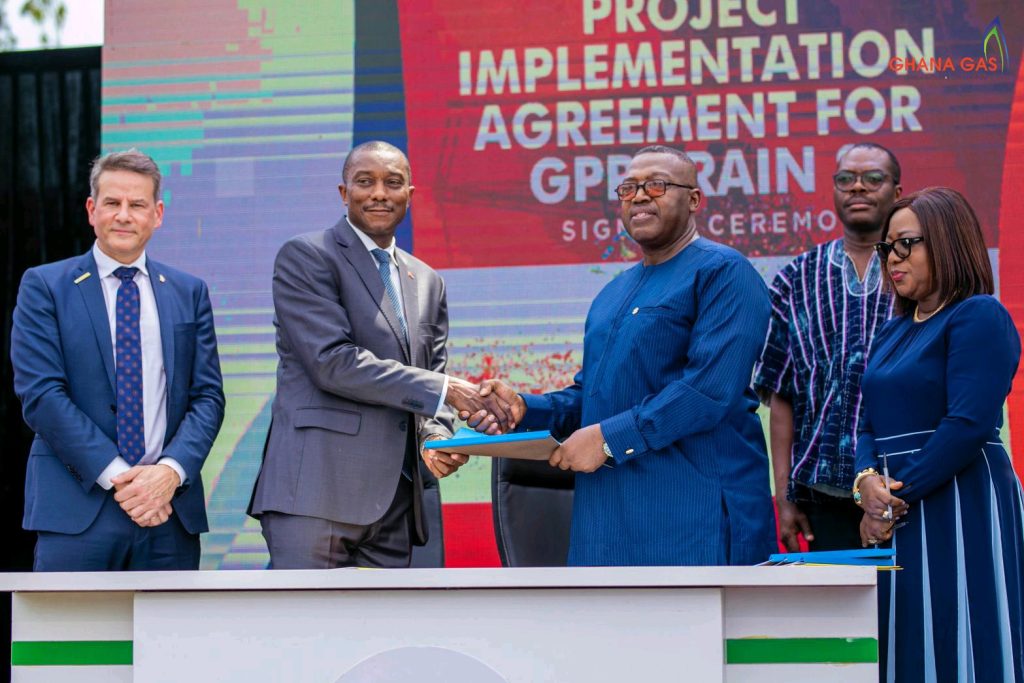
Ghana embarks on the expansion of its gas processing infrastructure
The Ghana National Gas Company (GNGC) has signed last week a project agreement for the construction of a second gas processing plant of 150 MMscf/d at Atuabo in Western Ghana. Train 2 will double gas processing capacity at Atuabo, where a first train of 150 MMscf/d was commissioned in 2015. Expansion plans have been on the table for a few years, with FEED studies completed for the second train in 2021. The initial capacity has been set at 150 MMscf/d, expandable to 350 MMscf/d in the future. The development of gas processing plants at Atuabo is part of Ghana’s Western Corridor Gas Infrastructure that transports gas produced offshore, processes it and sells it on the domestic market. The initial phase of the project cost some $1bn and was funded by China. It comprised a 58km offshore gas export pipeline from the Jubilee FPSO to the Atuabo gas plant, the construction of the first train at Atuabo, a 110km onshore pipeline transporting sales gas to the Volta River Authority’s power plant at Aboadze in Takoradi, and an LPG truck-loading gantry. The commissioning of the network in 2015 enabled TullowOil to monetise its associated gas from its Jubilee and TEN fields, thereby reducing flaring. The operator has committed to eliminate routine flaring in Ghana by 2025 while monetizing some 2 Tcf of gas reserves to meet the country’s growing gas demand. As a result, additional gas processing capacity is needed to process incremental raw gas volumes that will come from both the Jubilee and TEN fields. Details on Ghana’s gas infrastructure and the contractors involved in the expansion of the Atuabo GPP are available within your Hawilti+ research terminal – plus.hawilti.com
Read more »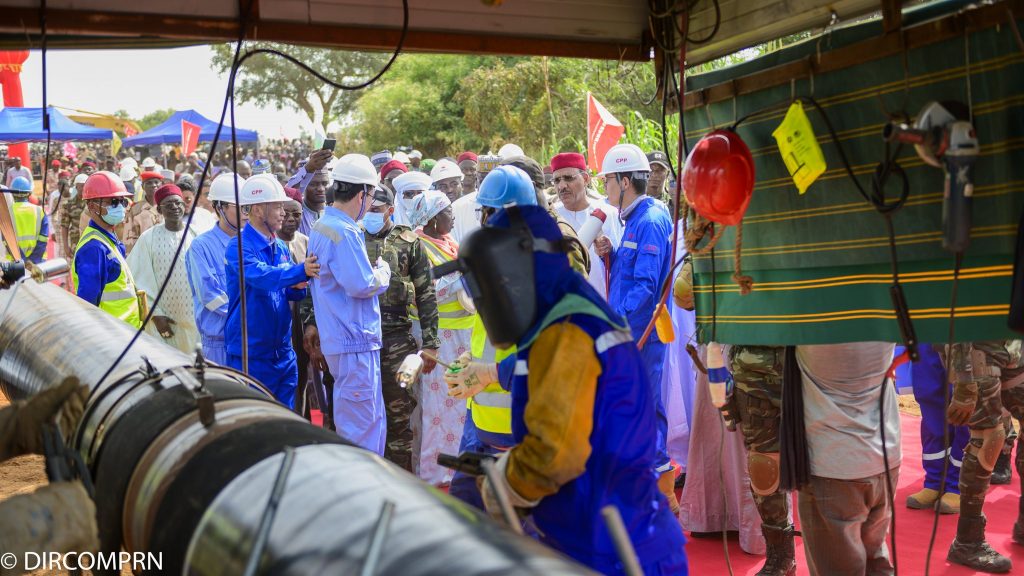
Niger-Benin Pipeline is 30% complete – Presidency of Niger
The Presidency of Niger has revealed last week that the Niger-Benin Oil Export Pipeline is 30% complete, during an official inspection on October 10th by President Mohamed Bazoum. “Over 600km have already been laid across several sections,” the Presidency said. The $4bn pipeline will be 2,000km long and link Niger’s oilfields in the Agadem Basin to an export terminal at Sèmè-Kpodji in Benin. It is being built by the West African Oil Pipeline Company (WAPCO), a subsidiary of the China National Petroleum Corporation (CNPC). Upon completion, it will export up to 90,000 barrels of oil per day (bopd) from Niger. Its commissioning is expected at the end of 2023. CNPC currently produces only about 15,000 bopd from Niger to supply its 20,000 bpd SORAZ Refinery. Once the pipeline is operational, the Chinese operator intends to ramp up its production to 110,000 bopd, most of which would be exported. Spare capacity will still be available for third-party operators like Savannah Energy, operator of the R1234 PSC area onshore Niger. Details on the Niger-Benin Oil Export Pipeline and blocks activity onshore Niger are available in the “Projects” section within the Hawilti+ research terminal.
Read more »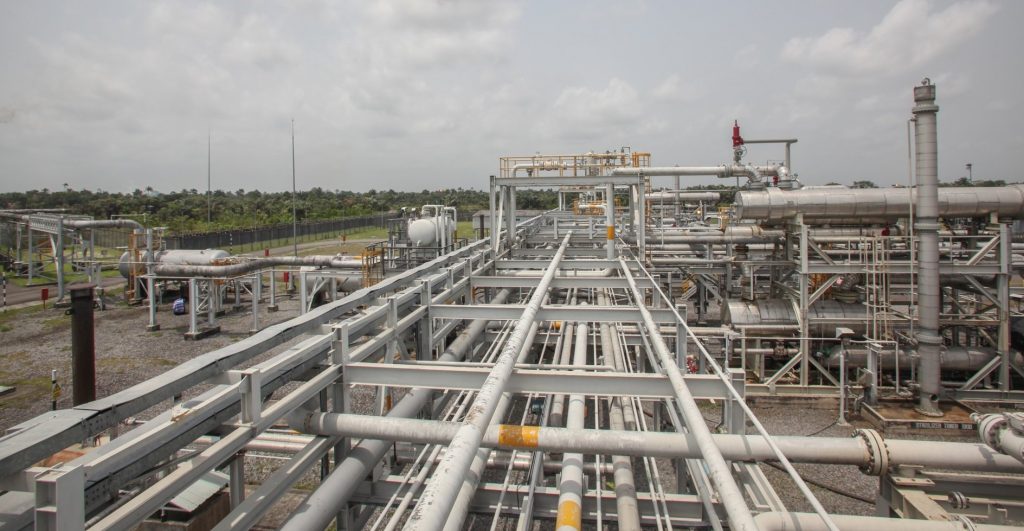
Nigeria: Accugas secures third Gas Sales Agreement of the year
Savannah Energy’s subsidiary Accugas has announced earlier today the signing of a new gas sales agreement (GSA) with Nigerian fertilizer manufacturer Notore Chemical Industries. The agreement covers the supply of up to 10 MMscf/d of gas on an interruptible and reasonable endeavours basis, based on gas availability and nominations, for an initial term of one year. Gas will be coming from Accugas’ 200 MMscf/d Uquo gas plant in Esit Eket, Akwa Ibom State. In February 2022, Accugas already entered into a new GSA with the Central Horizon Gas Company (CHGC), a subsidiary of Axxela. Under the terms of the GSA, CHGC can nominate to be delivered up to a maximum daily quantity of 5 MMscf/d. In June 2022, Accugas had also entered into a new 3-month gas sales agreement (GSA) with TransAfam Power Ltd to provide up to 35 MMscf/d of gas on an interruptible basis to the power plants of Afam Power Plc and Afam Three Fast Power in Okoloma, Rivers State. Details on the Uquo gas plant and Uquo marginal field development are available in the “Projects” section within your Hawilti+ research terminal.
Read more »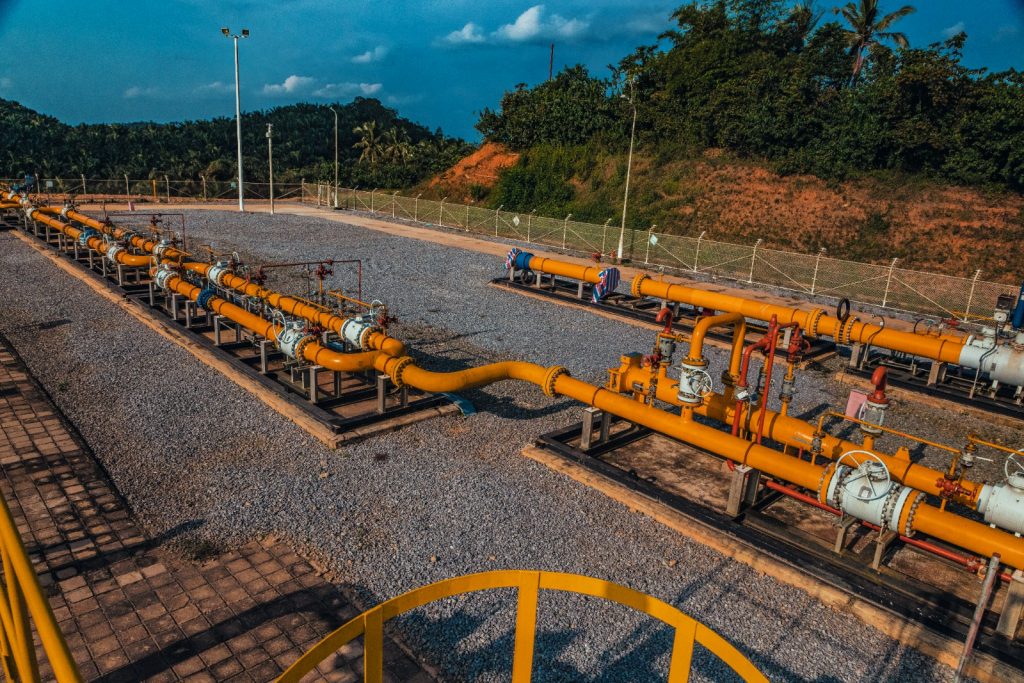
Genser Energy raises $435m to expand Ghana’s midstream gas infrastructure
American energy solutions provider Genser Energy has announced the closing of a $425m funding package to support the expansion of its midstream gas business in Ghana. The company is already a provider of captive power solutions to several of Ghana’s gold mines and is currently expanding across West Africa. The 8-year, $425m funding package includes a $325m syndicated senior loan facility and a $100m mezzanine loan facility. It will be used to refinance Genser Energy’s existing debt and support three critical midstream gas projects in Ghana. Expansion of Ghana’s gas pipeline network The first one is a 100km natural gas pipeline to Kumasi, Ghana’s second largest city. In doing so, Genser Energy seeks to make piped natural gas available within Ghana’s central belt and offer an alternative to imported trucked diesel and heavy fuel oil (HFO) for industries in the region. According to Genser Energy’s records, the company is planning to build an overall gas pipeline network of 320km in Ghana to connect its power generation plants to Ghana Gas’ Prestea Regulating and Metering Station (PRMS). In November 2019, a first phase of 80km was already commissioned to provide gas to Gold Fields’ Tarkwa and Damang gold mines power stations. Additional phases notably target gas supplies to Kinross Gold Corporation’s Chirano mine, Perseus Mining’s Edikan mine, and Gold Star Resources’ Wassa mines, among others. Launch of an integrated natural gas liquids (NGLs) business The second one is a 200 MMscf/d gas conditioning plant in Prestea, southwestern Ghana, where Genser Energy intends to produce natural gas liquids (NGLs) such as propane, butane, ethane, and liquefied natural gas (LNG). All NGLs will be sold under an off-take agreement to Trafigura, who notably participated in the mezzanine loan. Trafigura is also providing additional funding to the third and last project, a NGL storage terminal at the Takoradi Port. A wide range of financiers The ability of Genser Energy to secure such a debt package is an encouraging sign for Africa where several asset owners and operators are currently raising capital for domestic midstream and downstream gas ventures. A wide and diverse range of investors participated in Genser Energy’s senior loan facility, including regional and commercial international banks, development financial institutions, and funds. These comprised the Standard Bank of South Africa, Absa Bank, Société Générale, the Mauritius Commercial Bank, Ninety One, Barak Fund SPC Ltd, and the Development Bank of Southern Africa. On the other hand, the mezzanine loan facility is provided by Trafigura, Barak Fund SPC Limited and the US Based Fund, Trilinc Global Sustainable Income Fund Master Ltd.
Read more »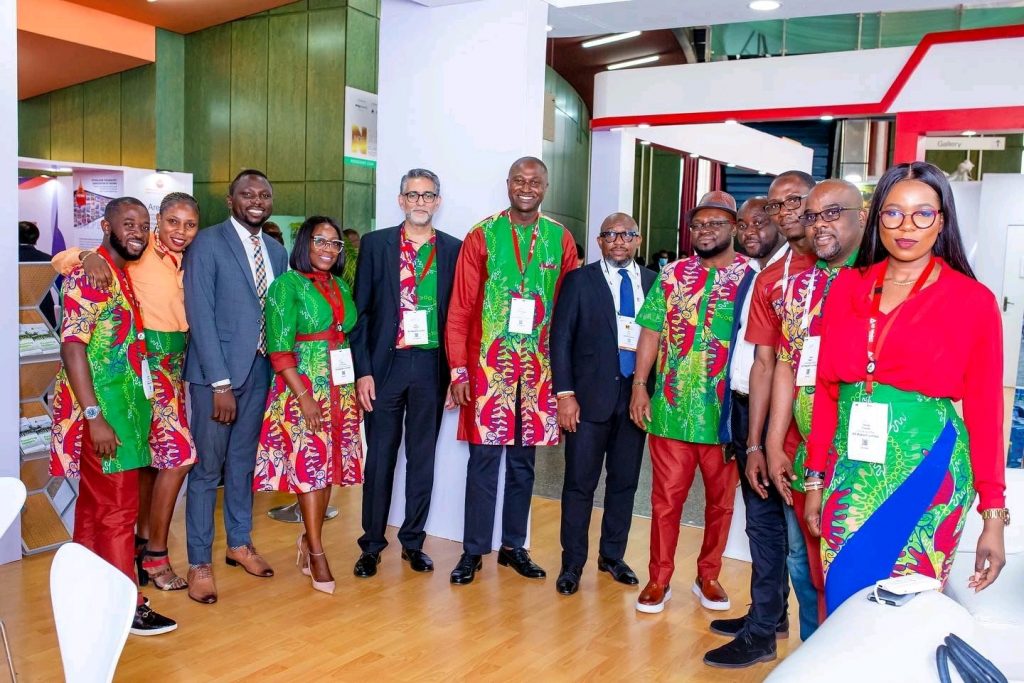
Eberechukwu Oji: Nigeria needs to make gas available to all its states capital cities
By the end of its Decade of Gas in 2030, Nigeria needs to have brought gas to all its state capital cities if it wants to truly spur industrialization, ND Western CEO Eberechukwu Oji said in Abuja last week. Oji was speaking at the 21st NOG Conference & Exhibition that took place from July 4-7, 2022. “A country is considered industrialized if its industrial output stands at around 20% of its gross domestic product (GDP),” he said. “Nigeria is far below that but has an opportunity to boost manufacturing and industrial production by monetizing its natural gas reserves. To reach that goal, we need to implement policies that enable capital to flow into gas infrastructure and make gas available to all of Nigeria’s state capital cities,” he added. ND Western owns 45% of OML 34 in the onshore Niger Delta where it produces oil and natural gas. It notably operates three gas processing plants there with a combined capacity of 600 MMscf/d and supplies gas to power plants and industries. However, illiquidity in the power sector value-chain has made investments into gas production uneconomically, and demand for gas-based industrialization is seen as much more attractive for operators in Nigeria. In May this year, ND Western partnered with another Nigerian independent, First Hydrocarbons Nigeria (FHN), and with gas distributor Falcon Corporation to provide gas to the Lagos Free Zone. The Gas Infrastructure Development Agreement (GIDA) was signed with their special purpose vehicle, Optimera Energy FZE, and will start delivering an initial 5 MMscf/d of gas from 2024. “We need to unlock investments into distributing gas to all of Nigeria’s industrial hubs,” Oji explained. “Even some demand centers in the East remain in need of gas for their industries. We need to look at the originally conceived eastern gas network and make gas available in Benue, Ebonyi, and Anambra states.” Oji was speaking on the day when the Parliament of the European Union backed new rules labelling investments in gas and nuclear power plants as climate-friendly. “Nigeria needs to get down to business with these new rules and think of commercializing its gas on a much larger scale for the export and domestic market,” he commented.
Read more »We must provide Nigerian operators with a modular approach to gas commercialisation
by Kayode Adeleke, CEO, RusselSmith Nigeria has made significant efforts in reducing the flaring of associated gas over the past few years. However, we are still a long way from eliminating routine flaring in the country, and too much gas remains wasted and burnt into the atmosphere. Whilst commendable initiatives such as the Nigerian Gas Flare Commercialization Programme (NGFCP) have been put in place by the government to monetize associated gas, the private sector needs to step up and find new ways to build the processing and monetization infrastructure that we need to extract as much value as possible from our gas. Globally, the oil & gas industry has succeeded in finding ways to transform even the smallest quantities of gas into commodities such as diesel, naphtha, LPG, CNG, or LNG. With its vast gas reserves, Nigeria offers a fertile ground to adopt such innovations, and the Nigerian services industry has an important role to play in introducing world-class gas processing technologies to the Nigerian market. A key challenge to the elimination of flaring in Nigeria is the proliferation of flare sites across the Niger Delta, which have made it more difficult to access or aggregate gas. However, this challenge presents unique opportunities for service companies to deploy modular and small-scale gas processing solutions from an off-take as small as 2 MMscf/d. Nigerian services companies are particularly wellplaced to take on such a responsibility, given the strong capacity that they have built over the past decade. Their ability to attract and work with global technology providers can help turn the country’s gas into valuable commodities for its industries and its economy. Nigeria already has several success stories of local companies working with global partners to monetize flared gas. With the recent introduction of the Petroleum Industry Act (PIA), now is the time to build on these successes and take them to the next level. At RusselSmith, we see tremendous prospects in gas, from small to large scale developments. In order to support the decarbonization of upstream operations and increase the availability of key products such as cooking gas, RusselSmith, through its gas subsidiary, G2L Energy Solutions, is notably working with an international partner to offer new and modular gas-to-liquids technology solutions to the Nigerian market. Our commitment to improving gas commercialization is driven by a firm belief that the success of any industry depends on the ability of its service providers to be innovative and provide their market with sustainable solutions.
Read more »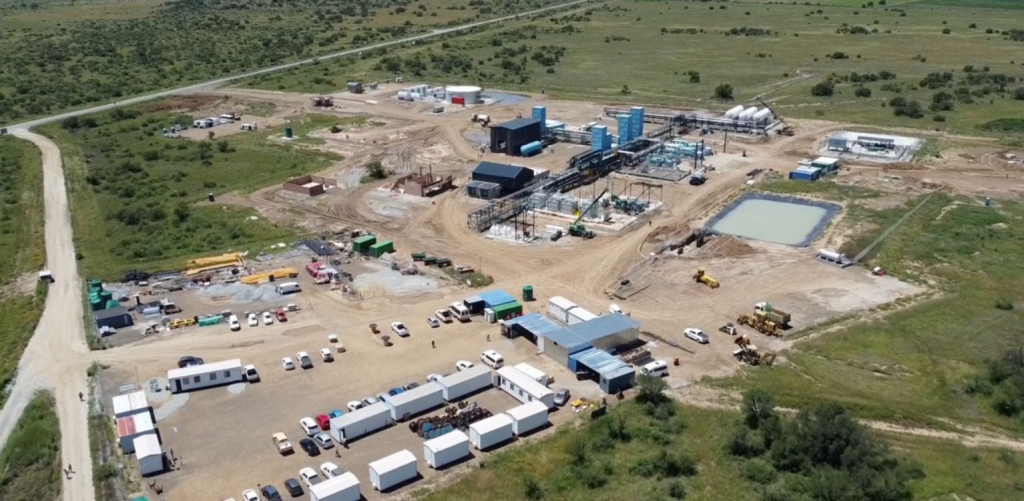
The US is contemplating increasing debt provided to South Africa’s leading gas, LNG, and helium project
The United States’ International Development Finance Corporation (DFC) is evaluating an increase of its loan to Renergen’s Virginia Gas Project in South Africa by up to $500m. The development finance institution (DFI), previously known as Overseas Private Investment Corporation (OPIC), had already provided $40m in debt to finance Phase 1 of the project. Its growing appetite is welcomed news as most gas infrastructure developers in Africa have criticized the withdrawal of Western DFIs from financing oil and natural gas projects on the continent. South Africa’s first LNG and helium project The Virginia Gas Project is developed by Tetra4, a wholly owned subsidiary of ASX-listed Renergen. It is developing South Africa’s first and only onshore petroleum production right to produce liquefied natural gas (LNG) and helium, a first in the country. Its Phase 1 includes a scalable gas plant and 52km of pipeline, and a maximum production target of 74.6 million cubic feet per day (MMcf/d) (about 350kg) of liquid helium and 2,700 GJ (50 tons) of LNG. Upon start of production, Renergen will notably become South Africa’s first distributor of LNG at filling stations through its partnership with French major TotalEnergies. Phase 2 is expected to follow by 2024, further increasing LNG production to meet an anticipated increase in demand and provide LNG supplies across all major highways in South Africa. Key contracts for phase 2 were awarded in early 2021, including the FEED studies, and the final investment decision (FID) is expected to be taken once these are completed. Phase 2 is designed to allow Renergen to produce significantly larger quantities of LNG and liquid helium: it should notably require a CAPEX of $800m and involve a drilling campaign of 297 wells, anticipated to build up to 44 MMscfd at full production. 65% of Phase 2’s anticipated production is already pre-sold to clients including Linde, Meser, Helium 24 and iSi. Details on the Virginia Gas Project, including contractors, financiers, and offtakers, are available in the “Projects” section within your Hawilti+ research terminal.
Read more »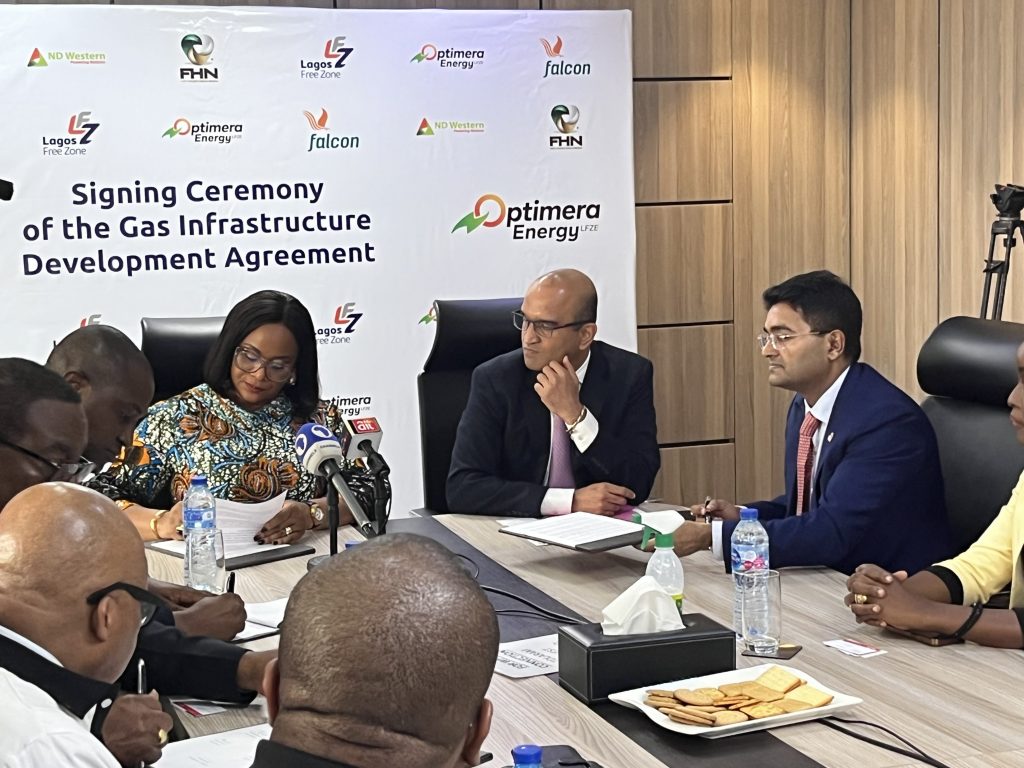
Nigerian companies team up to provide gas to West Africa’s leading industrial hub
The Lagos Free Zone (LFZ) has officially signed earlier today a Gas Infrastructure Development Agreement with Optimera Energy FZE to develop its own gas distribution network. The new project gathers some of Nigeria’s leading gas players around a new venture committed to promoting gas-based industrialisation. West Africa’s leading industrial hub needs gas Located on the Lekki Corridor, the Lagos Free Zone covers some 830ha and is quickly emerging as West Africa’s leading integrated multi-cluster industrial zone. The project is promoted by the Tolaram Group of Singapore and is co-located with the Lekki Port, Nigeria’s deepest multi-purpose seaport, expected to be completed this year. LFZ has already been successful in attracting several industrial companies and manufacturers including TG Arla, Kellogg’s, Colgate, BASF, Saba Building Systems, or Raffles Oil amongst others. As the zone grows, it seeks to cater for potential high-growth sectors such as FMCG, pharmaceuticals, chemicals, engineering, non-metallic minerals, logistics and mixed-use. This is in return increasing the need to provide world-class infrastructure, including a reliable energy supply. Optimera Energy is now in charge of building, owning, and operating the natural gas distribution network within the free zone. The project is expected to require some $20-25m, with uninterrupted deliveries of piped gas expected to start in 2024. Initial capacity will be set at 5 MMscf/d before being gradually increased to 40 MMscf/d as demand in the zone picks up. The special purpose vehicle (SPV) gathers three of Nigeria’s strongest gas players including natural gas distributor Falcon Corporation Ltd and independent oil & gas companies ND Western and First Hydrocarbon Nigeria (FHN) via their respective subsidiaries ND Western Midstream Ltd and FHN Gas Ltd. “The Optimera consortium is made up of like-minded shareholders who are passionate about a common goal: accelerating the further growth of domestic gas utilisation in Nigeria. Having reliable dedicated gas supply infrastructure installed in the LFZ adds tremendous value to existing industrial concerns and will increase the Zone’s attractiveness to future customers.” Audrey Joe-Ezigbo, Managing Director of Optimera Energy and Deputy Managing Director of Falcon Corporation. Promoters of gas-based industrialisation Falcon Corporation has been successfully operating the Ikorodu natural gas franchise in Lagos since November 2006 and will bring its experience in building and operating gas pipeline networks for industries. The company is also a bulk distributor of Liquefied Petroleum Gas (LPG) in the domestic market and is actively developing LPG bulk storage infrastructure in the Niger Delta. On the other side, both ND Western and FHN are amongst Nigeria’s biggest gas producers from OML 34 and OML 26 in the Niger Delta, with combined gas reserves of over 4 Tcf. Via Optimera Energy, they will be transporting their gas to the Lagos Free Zone via the Escravos-Lagos Pipeline System (ELPS). ND Western has notably increasingly positioned itself as an enabler of industrialisation in Nigeria. The company already supplies gas to several power plants in the country via ELPS and exports gas to West African markets via the West Africa Gas Pipeline (WAGP). On OML 34, it has recently embarked on the development of an industrial park providing industries with direct access to cheaper gas directly at the pump. The rise of gas-to-industry in Nigeria Because the power sector remains illiquid, the promotion of gas utilization across other industries is seen as a priority under Nigeria’s Decade of Gas initiative. Chief amongst them is the expansion of the downstream gas sector, especially Autogas for cars and piped natural gas (PNG) for industries. Consequently, industrial gas off-takers are on the rise, and the volumes of domestic gas monetised by Nigerian industries (gas-to-industry) have doubled between 2015 and 2021. To know more about the trends, actors, and projects shaping up Nigeria’s natural gas sector, please log into your Hawilti+ research terminal at plus.hawilti.com.
Read more »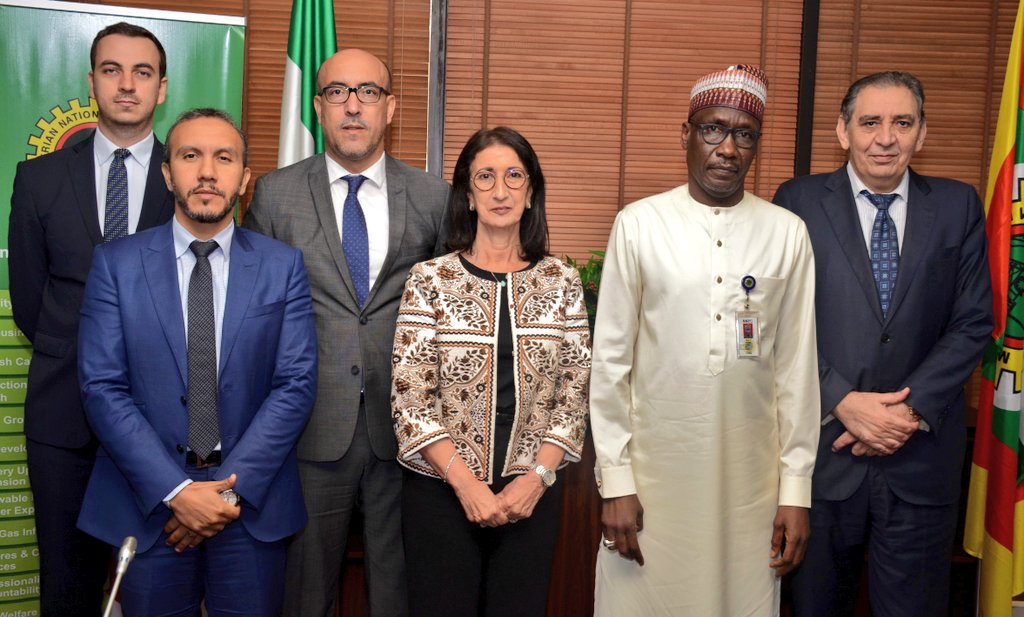
Worley awarded FEED Phase II contract for Nigeria-Morocco Gas Pipeline
Worley has announced that it has been awarded a contract to provide main front-end engineering design (FEED Phase II) services for the 7,000km Nigeria-Morocco Gas Pipeline (NMGP) project. The feasibility study and FEED Phase I were previously completed by Penspen. The project is led by Morocco and Nigeria’s national oil companies, the Office National des Hydrocarbures et des Mines (ONHYM) and NNPC Ltd. If completed, it would be the longest offshore pipeline in the world. Its FEED study already received financing from the Islamic Development Bank in December 2021. The development bank had then declared that a final investment decision (FID) was targeted for 2023. The pipeline has been on the table for some time and is seen as an extension of the existing West Africa Gas Pipeline (WAGP) that was commissioned in 2011. However, WAGP has been plagued by several operational issues, including unreliable gas supplies from Nigeria and legacy debt payments from off-takers. The NMGP is expected to traverse 13 West African countries and offer African gas producers a new avenue to export their gas to neighboring countries and to Europe. Nigeria, Ghana, Côte d’Ivoire, Senegal, and Mauritania all have discovered gas reserves located offshore. Gas deliveries could be made across the pipeline route to African markets seeking to secure additional gas supplies or exported all the way up to Europe via Morocco. “The overall FEED services will be managed by Intecsea BV, our offshore engineering consultancy business in The Hague, the Netherlands. This includes the development of the project implementation framework and supervision of the engineering survey,” Worley said in a statement. Nigeria holds Africa’s largest gas reserves and is increasingly seeking to monetise it domestically and for exports. On February 16th, Minister of Petroleum Timipre Sylva was in Niger to sign the Niamey Declaration with his counterparts from Algeria and Niger. The agreement seeks to put the Trans-Sahara Gas Pipeline (TSGP) Project back on track – another gas pipeline that would allow Nigeria to export its gas to Europe via Niger and Algeria. Earlier this month, Minister Timipre Sylva also expressed interest in reviving the Brass LNG export terminal project – a 10 mtpa LNG export scheme first discussed in 2003.
Read more »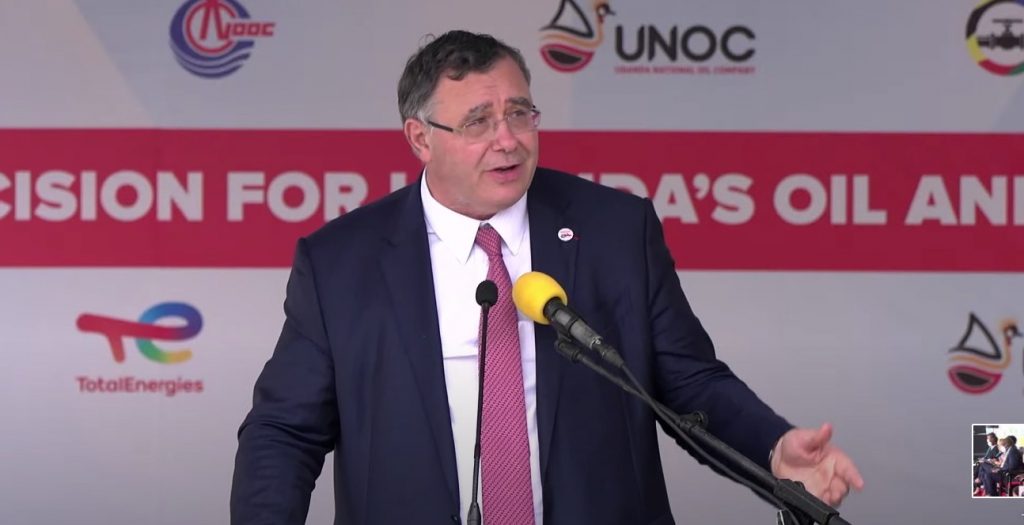
TotalEnergies takes FID on $10bn of oil projects in Uganda, 16 years after first discovery
TotalEnergies, CNOOC and the Uganda National Oil Co. have taken a final investment decision (FID) today on the development of onshore oilfields around the Lake Albert in Uganda, and a massive export pipeline to Tanzania. The first discovery was made in January 2006 by Hardman Resources at the Mputa-1 well. Since then, over 1.4bn barrels of recoverable oil have been proven in the area. However, repeated tax disputes with the Government of Uganda and lack of refining and export infrastructure constantly delayed their development. The project was put back on the table only in April 2020 when authorities agreed the sale of TullowOil’s entire assets in Uganda to TotalEnergies for $575m. This sale was officially completed in November 2020, making TotalEnergies operator of most discoveries and finally paving the way for a final investment decision (FID). TotalEnergies is now operator of the Tilenga oil project, where first oil is expected in 2025 with a peak production projected at 190,000 barrels of oil per day (bopd). The Tilenga project covers six oil fields within Contract Area CA1, License Area LA-2 (North) and Exploration Area EA-1A, all located within the Albertine Graben in Western Uganda. Plans for the project include the drilling of 426 wells from 31 well pad locations, supported by a network of underground pipelines to collect oil production and transport it to a 200,000 bopd central processing facility (CPF) built within the planned Industrial Area in the Buliisa District. Once treated at the CPF, oil will be exported via the 1,443 km East African Crude Oil Pipeline (EACOP) that will terminate at an oil depot and an offshore loading terminal in Tanga, Tanzania. On its side, CNOOC is operator of the Kingfisher oil project with a projected peak output of 40,000 bopd. Advancing the project’s low-cost and low emissions, TotalEnergies was able to fast-track the FID and get it approved less than two years after it acquired its operated interest from TullowOil. “The design of the facilities incorporates several measures to limit greenhouse gas emissions well below 20 kg CO2eq/boe, including the extraction of Liquefied Petroleum Gas (LPG) for use in regional markets as a substitute for burning biomass, and the solarization of the EACOP pipeline,” the company said in a statement. In parallel, the Government of Uganda is also hoping to build a 60,000 bpd refinery on site to process its domestic crude. The Project Framework Agreement was signed with the consortium comprising YAATRA, BHGE, LionWorks, and Saipem in 2018 to develop, finance, construct and operate the greenfield oil refinery. Full details on the Tilenga Oil Project and the EACOP pipeline project are available in the “Projects” section within your Hawilti+ research terminal.
Read more »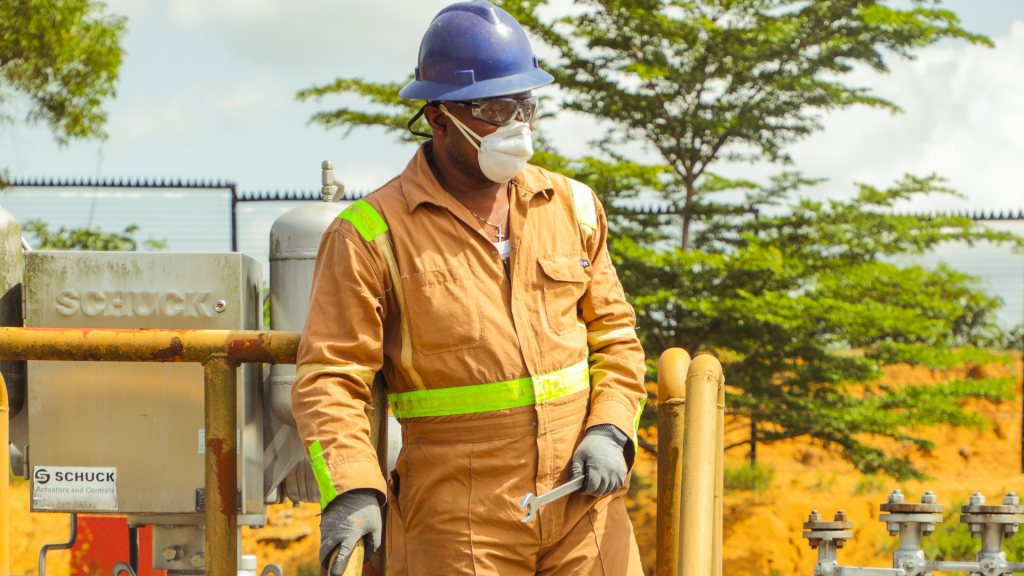
Savannah Energy signs agreements to acquire ExxonMobil and PETRONAS’ assets in Chad and Cameroon
After months of negotiations and site visits, Savannah Energy has announced the execution of share purchase agreements (SPAs) worth $626m with ExxonMobil and PETRONAS to acquire their oil & gas assets in Cameroon and Chad. The deals will see the British independent gaining a combined 75% controlling interest in the Doba Oil Project and 70% indirect controlling interest in the Chad-Cameroon oil export transportation system. Chevron had previously sold its 25% interest in the Doba Oil Project and 21% interest in the pipeline system in 2014 to the Government of Chad for $1.3bn. While negotiations with ExxonMobil had been announced earlier this year, the acquisition of PETRONAS’ interests in both countries was not expected. The transaction will see Savannah Energy expand its African portfolio, which already comprises upstream oil operations in Niger and upstream and midstream gas operations in Nigeria. The ExxonMobil Acquisition – $360m Savannah Energy is acquiring ExxonMobil’s entire upstream and midstream asset portfolio in Chad and Cameroon for $360m. The acquisition will be funded through a mixture of debt and equity/equity-linked financing and the SPA has an economic effective date of January 1st, 2021. Concretely, Savannah Energy is acquiring a 40% interest and operatorship of the Doba Oil Project, an onshore oil business with a production of 33,700 barrels of oil per day (bopd) in 2020. It is also acquiring a 40% indirect interest in the Chad-Cameroon oil export transportation system, that comprises the 1,081km Chad-Cameroon oil pipeline and the Kome Kribi 1 floating, storage and offloading (FSO) vessel offshore Cameroon. Last year, the pipeline transportated an average of 129,200 bopd. The facilities have been operating since 2003 and the pipeline remains the only evacuation route for Chad’s oil and is used by several operators. According to Hawilti’s research, the current list of pipeline beneficiaries include China National Petroleum Corporation International Chad, Cliveden, Royalty In Kind, Société des Hydrocarbures du Tchad (SHT), ExxonMobil, Petronas, Petro Chad Mangara, Glencore and Petroleum Chad Company Limited. The PETRONAS Acquisition – $266m Secondly, Savannah Energy is further consolidating its interest in the same assets by also acquiring PETRONAS’ entire upstream and midstream asset portfolio in Chad and Cameroon. The transaction is valued at $266m and the SPA also has an economic effective date of January 1st, 2021. Under this second transaction, Savannah Energy is acquiring an additional 35% interest in the Doba Oil Project and an additional 30% indirect interest in the Chad-Cameroon oil export transportation system. As a result of both acquisitions, Savannah Energy is acquiring a combined 75% controlling interest in the Doba Oil Project and 70% indirect controlling interest in the Chad-Cameroon oil export transportation system. The remaining interests are owned by the national oil companies of Chad and Cameroon. Details on the Chad-Cameroon Petroleum Development and Pipeline Project are available in the “Projects” section within your Hawilti+ research terminal.
Read more »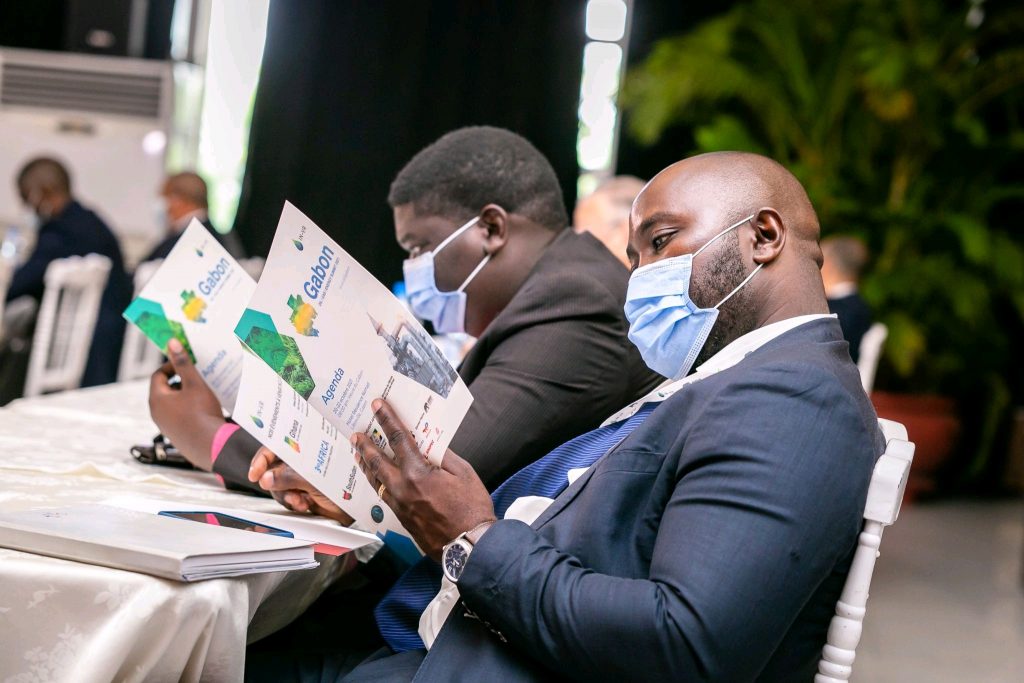
Gabon exposes clear vision on what to do with its natural gas
Gabon is thought to hold anywhere between 3 to 5 trillion cubic feet (Tcf) of gas, although the country remains a small gas producer. To date, most of its gas has remained on the ground or flared – with only small quantities monetised domestically for power generation in Libreville and Port Gentil. But as Gabon implements an ambitious “Green Gabon” environmental policy and seeks to diversify its economy, the country wants to cut routine flaring altogether and monetise it for the benefits of its industries, households, and economy. The recent Gabon Oil, Gas & Energy Summit organized by IN-VR in Libreville last October notably exposed the alignment of most parties on the need to monetise gas instead of flaring it. A New Gas Strategy in the Making To achieve its gas ambitions, Gabon is currently working on a new Gas Master Plan with Wood Mackenzie and the World Bank’s Global Gas Flaring Reduction Partnership (GGFR). The plan will have four major ambitions: reduce gas flaring, increase energy security, expand access to affordable energy and attract investments into gas projects. Gabon’s flared gas currently emits about 2,244,500 tonnes of CO2 per year, enough to generate 500 MW of power. Natural gas also features prominently within the country’s 2021-2023 Plan to Accelerate Transformation (PAT), which includes a dedicated Gas Task Force headed by former Gabon Oil executive Yann Pierre A. Livulibutt Yangari. “Our gas strategy is targeting actions across the whole value-chain. In upstream, we want to get operators to explore for gas and stop considering it as a risk. In midstream, we want to see flared gas being monetised for the benefits of the Gabonese economy. Finally in downstream, we want to improve gas supplies especially of liquefied petroleum gas (LPG), compressed natural gas (CNG) and liquefied natural gas (LNG),” Yangari said during IN-VR’s summit. As it stands, Gabon intends to primarily monetise flared gas to generate power, manufacture urea and produce methanol. These are the major industries identified based on existing gas reserves and technology available from existing investors and operators in the country. Once these are developed, hopes are that by-products would follow, especially when it comes to LPG, CNG (Autogas) and micro-LNG. Source: DGEPF “We are working on supporting the development of a gas-based economic network to support local content development, promote technology adoption and support industrialisation,” Yangari added. While Gabon has not discovered enough gas reserves to justify the development of more significant industries like LNG for export or gas-to-liquids, the country remains hopeful. Its 12th Licensing Bid Round has resulted in the award of new exploration blocks, and upcoming drilling campaigns could result in new gas discoveries supporting further gas developments in the medium-term. To justify the investment, Gabon is putting forward its growing industrial base driving demand for both power and gas. Last September, the Gabon Power Company (GPC) notably signed a landmark Concession Agreement with Wärtsilä for the development, supply, construction, operation, and maintenance of a new 120 MW gas-to-power project in Owendo, next to the capital city of Libreville. But beyond just the power sector, Gabon wants to provide gas to its mining, forestry, agro-industry, and steel industries. In parallel, its logistics network is expanding with railways and maritime industries both positioned to be potential off-takers sooner than later. An Opportunity for Small-Scale Gas Projects Gabon’s vision relies on the monetization of gas into CNG for transport and micro-LNG for industries. A key strategy is to expand the country’s CNG network but use micro-LNG for any remote industries located over 400km from producing fields, especially mining industries. To support such expansion, the country is seeking investors across several projects such as LPG plants, LNG and CNG plants, LNG and CNG storage, onsite regasification and bi-fuel conversion. Chief amongst them is the need to secure 30,000 cubic metres of additional butane storage capacity, up from only 4 to 5,000 cubic metres now. Source: DGEPF Port Gentil features prominently within that vision as a pilot city to grow the CNG industry. It is there that Perenco already runs a private gas retail station for 40 of its own vehicles. Now, Gabon wants to grow the market by constructing public CNG stations in partnership with oil marketers and develop a new pricing structure for CNG. The aim is clear: reduce petroleum products imports while generating additional revenues from domestic gas. Perenco Takes the Lead Perenco will be a key actor of that transition to gas. The operator is the country’s sole commercial gas producer and currently supplies gas feedstock to the power stations of Port Gentil and Libreville. In fact, 100% of Port Gentil’s power relies on Perenco’s gas while 70% of Libreville’s power is generated from the operator’s gas supply. “We have invested $500m into the development of a 400km onshore and offshore gas gathering system in Gabon that supplies gas to power plants but also key industries such as Sobraga. In the process, we created 150 jobs,” Director General Adrien Broche said during the IN-VR Summit. Perenco is now increasing its investments and leveraging on its existing infrastructure to commission a 10 to 15,000 tonnes per annum (tpa) LPG plant in Batanga by 2023. Batanga is currently the cornerstone of its gas business and is equipped with enough compressors to compress gas to over 100 bars so it can be transported across the country. “The Libreville and Port Gentil power stations currently represent an off-take of about 40 MMscfd,” Broche explained. “While only half of that capacity was coming from flared gas, we are installing additional compression capacity so all feedstock supplied to power plants comes from previously flared gas. We have installed two onshore compressors this year and are now expecting additional ones for offshore operations. By mid-2022 or early 2023, all gas we send onshore for power generation will come from previously burned resources,” he added. The Need for an Industry and Policy Consensus But to furter monetise gas and create jobs, Gabon must first find a way to aggregate
Read more »
Africa Oil sets new plateau target for $3.4bn Project Oil Kenya – seeks partner prior to FID
Canadian junior African Oil Corp. has announced today a new production plateau of 120,000 barrels of oil per day (bopd) from Blocks 10BB and 13T onshore Kenya, up from the previous estimate of 100,000 bopd. Both licenses are located within the South Lokichar basin and are known as Project Oil Kenya, which Africa Oil Corp. intends to develop with its current partners TotalEnergies and Tullow Oil. The revised target notably follows changes in the project’s development concept in order to make it more commercially and environmentally viable. The revised project has also reduced the overall unit cost from $31/bbl to $22/bbl, making the project more attractive in a lower oil prices environment. Africa Oil expects a gross oil recovery of 585m barrels over the life of the field following the audit of the resource position by Gaffney, Cline & Associates. Phase 1 would initially target the development of the Ngamia, Ekales, Amosing and Twiga (NEAT) fields. Future phases would eventually focus on additional exploration potential within the 10BB/13T licenses while bringing the 10BA license acreage into production. Compared to the previous field development plan, we have a more economically robust project, which I am confident is more attractive to potential new partners. Keith Hill, President & CEO, Africa Oil Corp. The new development concept notably entails a 130,000 bopd facility along with an increase of the pipeline size from 18’’ to 20’’. The three joint-venture partners still expect to submit a final field development plan (FDP) by the end of this year in order to secure a license extension. However, the taking of a final investment decision (FID) is unlikely until they have secured a new strategic partner, likely to take over Tullow Oil’s stake in the project. As it stands, the project is expected to require $3.4bn in investment, including $2bn for its upstream component and $1.4bn for the pipeline. Project Oil Kenya has in fact already produced 450,000 barrels via an early oil pilot scheme that was operational from June 2018 to June 2020. Oil was produced from the Amosing and Ngamia fields then trucked from Turkana to Mombasa. Full details on Project Oil Kenya are available in the “Projects” section within your Hawilti+ research terminal.
Read more »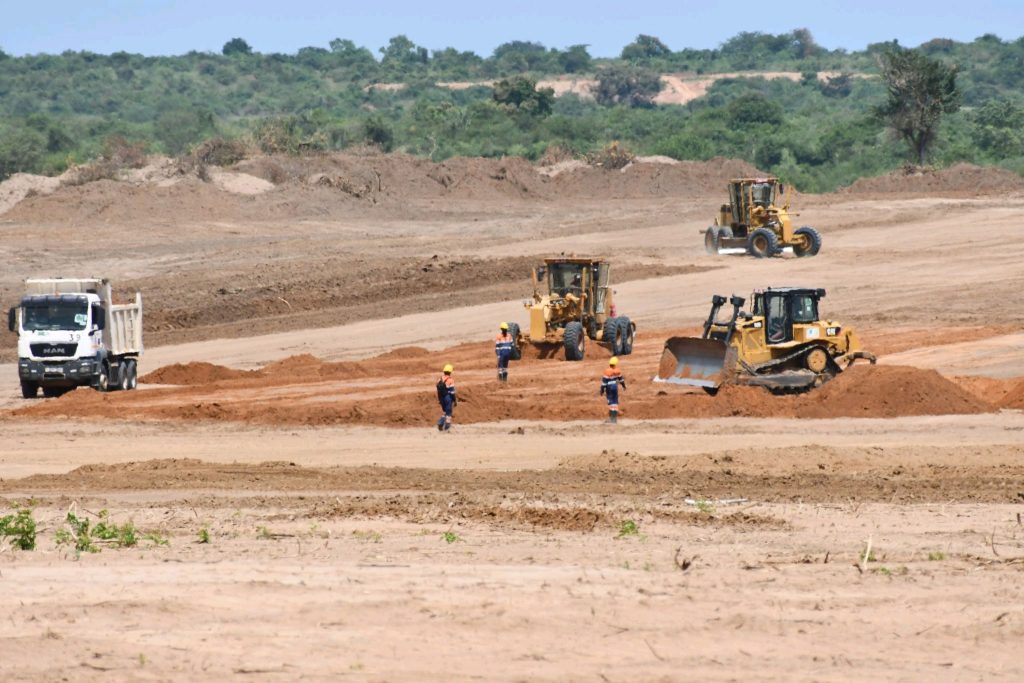
What does the EACOP Bill mean for Africa’s most controversial pipeline project?
Since TotalEnergies announced its acquisition of TullowOil’s shares in the Tilenga oil project and the East African Crude Oil Pipeline (EACOP), Uganda has crystalized a lot of the global tensions around the debate of development vs. environment. By developing the 1.7 billion barrels of contingent oil resources discovered around the Lake Albert, TotalEnergies is expected to produce 190,000 barrels of oil per day before the end of this decade, propelling Uganda into the club of African oil producers. The country would be producing as much as Ghana and Gabon currently, generating significant revenue for its state coffers. To export that oil to global markets, TotalEnergies is building the world’s longest heated crude oil pipeline, a 1,443km line linking Uganda’s oilfields to the Tanzanian port of Tanga. Once again, this means revenues for the state of Tanzania via transit fees. The integrated development will result into billions of dollars injected into both economies, support the development of infrastructure, and create jobs in the process. Despite growing opposition from environmentalist groups and NGOs, and the withdrawal of a few of its financiers, the project is progressing. On September 1st, the Ugandan Cabinet approved the EACOP Bill that gives significant support to the pipeline’s construction and operation by granting it four different fiscal packages. The Bill is seen as giving strong backing to the EACOP Company made of TotalEnergies (62%), UNOC (15%), TPDC (15%) and CNOOC (8%). The Government of Uganda, which had long delayed the initial takeover of TullowOil’s assets by TotalEnergies on the back of fiscal disagreements, is now getting generous. It is notably proposing tax packages on corporate income tax and value added tax (VAT) under which the EACOP Company will be exempt of the former for ten years and will be subject to zero rated VAT for its export of goods and services. The exemption of corporate income tax for ten years is significant given that the standard rate applied to resident and non-resident corporations in Uganda is of 30%. In addition, the EACOP Company is set to benefit from a package on withholding tax as well as an exemption from paying transit fees in Uganda. The withholding tax is fixed at 5%, following the terms set within the previously signed Host Government Agreement (HGA). The set of fiscal incentives granted to EACOP notably follows the withdrawal of several financiers and banks from the project. Earlier this year, BNP Paribas, Société Générale & Crédit Agricole reportedly withdrew their funding commitment on the back of human rights concerns
Read more »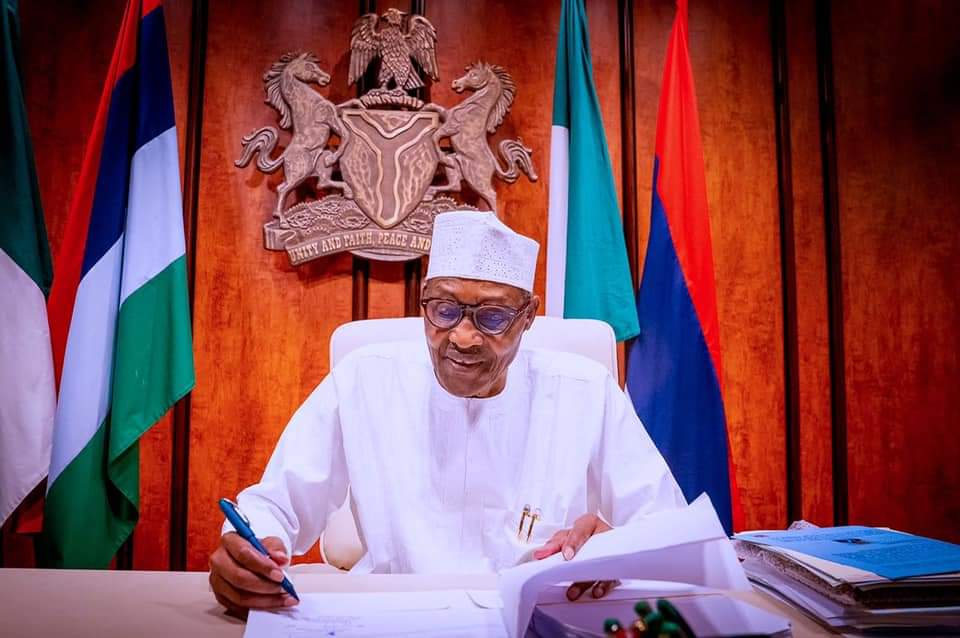
President Buhari has signed Nigeria’s Petroleum Industry Bill into law
It took almost two decades, two historic crashes in commodity prices and two recessions for Nigeria to finally adopt its new Petroleum Industry Bill. Following its passing at both chambers of Parliament in July, the bill was officially signed into law by President Buhari today. The bill is expected to provide much-needed regulatory certainty for investors seeking to do business in Africa’s most populous nation. Nigeria has the world’s eight largest proven gas reserves and is Africa’s largest crude oil producer. However, years of under-investment have left production on a declining trend: in June of this year, Nigeria was producing only about 1.4m bopd and has not been producing over the 2m bopd threshold since 2012. A major factor to judge the efficiency and impact of the PIB will now be its ability to revive deep-water projects that have remained on the shelves for years. IOCs in Nigeria have discovered billions of barrels of oil equivalent offshore which have remained undeveloped because of market conditions and lack of a supportive regulatory framework. The passing of Nigeria’s Deep Offshore and Inland Basin Production Sharing Contract (Amendment) Act in late 2019 had only further jeopardized the economics of most of these discoveries by removing the water depth-based royalty and replacing it with a flat 10% royalty on all deep-water PSC. It had also introduced a price-based royalty adding 0 to 10% depending on the oil price. Will the PIB be able to revive the investment appetite of IOCs for those deep-water projects? Time will tell but time is also of the essence. Only the development of these discoveries has the power to significantly increase Nigeria’s output. Another crucial aspect to take into consideration is the security situation in the Niger Delta. Insecurity and vandalism there are one of the main reasons for investors shying away from Nigeria and for the exit of IOCs out of their onshore and shallow water licenses in the country. It remains until today a major factor preventing Nigeria’s hydrocarbons sector to realize its investment potential. Because host communities will not be receiving the share they asked for (2.5-3% instead of 10%), an appeasement in the Niger Delta is not certain. For the same reason, the PIB is not expected to slow down the pace of divestments by IOCs in the Niger Delta, although the same move will benefit indigenous players with cash at hand.
Read more »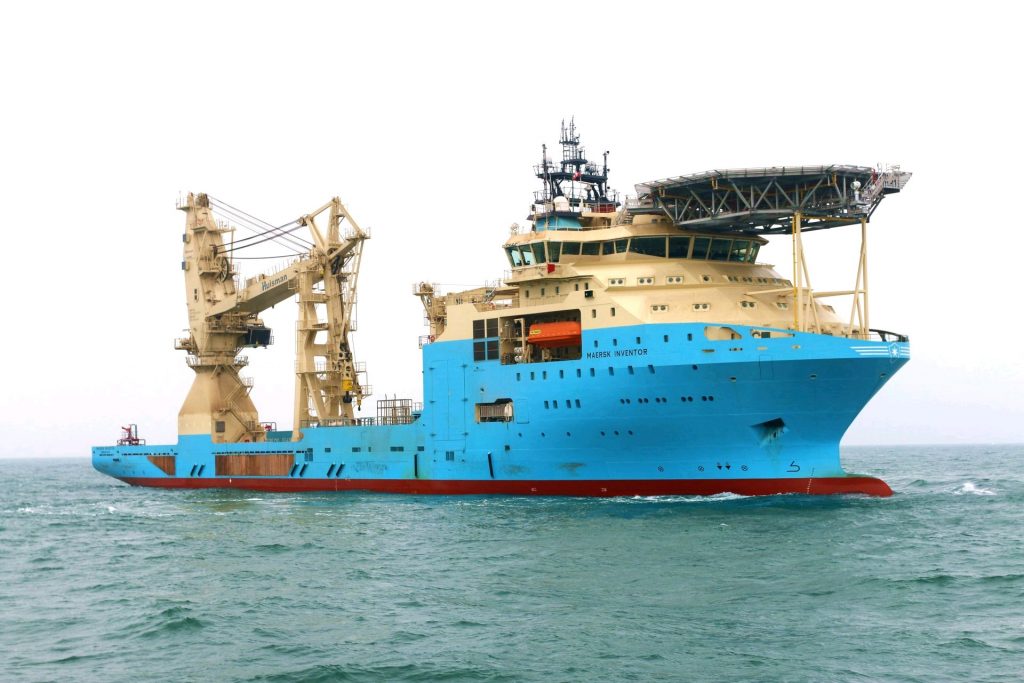
Maersk wins Mooring System contract on Kome-Kribi 1 FSO in Cameroon
Maersk Supply Service has just been awarded a contract by the Cameroon Oil Transportation Company (COTCO) for Phase 2 of the mooring system maintenance project on the Kome-Kribi 1 FSO (Kome-Kribi 1 Marine Terminal) offshore Douala. The marine terminal forms the last part of the 1,070km Chad-Cameroon Oil Export Pipeline that evacuates Chad’s oil to global markets. Under the project, Maersk Supply Service will replace two link arms on a yoke mooring system on the Kome-Kribi 1 Marine Termina. This notably follows Phase 1 of the project, during which Maersk Supply Service had already carried out the design, engineering, procurement and installation of a temporary redundancy system. The contract comprises of the full project management and engineering and the two-month offshore operations, which are scheduled to commence in Q4 2022. They will require an I-class Subsea Support Vessel (SSV) from the Maersk Supply Service fleet, as well as two Anchor Handling Tug Supply (AHTS) vessels, which will also be employed for station keeping of the FSO. Despite being under-utilised, the Chad-Cameroon Pipeline continues to generate revenue for the State of Cameroon with transit fees standing at FCFA 11.59bn ($21m) between January and April 2021. Details on the Chad-Cameroon Petroleum Development and Pipeline Project are available in the “Projects” section within your Hawilti+ research terminal.
Read more »